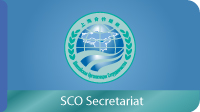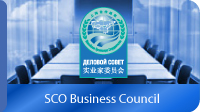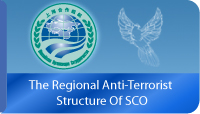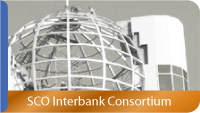|
|
 |
| Bakhtiyor Khakimov: “There is only one way – to enhance dialog, develop cooperation and improve the SCO” |
| 07.06.2017 12:15 |
|
|
|
|
Q.: The Astana summit has already been called historical: the SCO is expanding, becoming an “eight” instead of a “six,” admitting India and Pakistan. Apparently, it will need to integrate the new members in its activities. How difficult do you think this process will be?
A.: Admission of new members, two large countries, will be the key event of the meeting of the SCO Council of the Heads of State. A brand new era is beginning. Of course, we will need to integrate the new members in the SCO’s activities. At the summit, we will need to sum up the achievements of the past, and to assess our prospects and opportunities of further development and expanded cooperation.
The figures I am going to cite are well-known and they are true: after accession of India and Pakistan, the SCO will comprise 44% of the world’s population, producing about 24% of global GDP. These figures give a picture of the prospects that are opening up for the Organization. But there is another well-known fact: structures that stop developing do not have a future.
Q.: Preparation of accession documents for the two new members has taken quite some time. What are the principles of the SCO’s expansion and how well are the risks assessed?
A.: First of all, we have a policy on admission of new members, which stipulates a number of criteria potential members must comply with. If a candidate does not meet at least one requirement, the decision on starting the accession procedure cannot be made. The Policy clearly defines all conditions candidates have to meet. The main one is that an applicant state must declare its readiness to rigorously abide by all obligations existing within the SCO’s current agreements and contracts. This is what India and Pakistan have done. In their official documents and applications, New Delhi and Islamabad confirmed that they had timely and unconditionally, without any exceptions, joined the rules of the Organization mandatory for all member states and also all other documents (there are about 30 of them). I would like to add that both India and Pakistan met this requirement quickly and timely.
Speaking about risks, there is virtually no ground for them to arise. The key principle of the SCO – consensus – was, is and will remain unchanged. On the other hand, there have always been dissenting opinions of member states, and this is natural. The principle of consensus does not mean that throughout the 16 years of the Organization’s existence, all decisions were passed instantly and readily. Many of them were not adopted for lack of common consensus, while others were simply blocked by certain states. And this is a normal process.
It should be pointed out that both New Delhi and Islamabad have repeatedly emphasized their readiness to abide by all the rules of the SCO and avoid bringing any bilateral disputes to the SCO.
Q.: The SCO could become an influential and powerful peacemaker…
A.: I agree completely, because one of the arguments Russia used when explaining our desire to speed up the accession of India and Pakistan was that the SCO could be a convenient platform for exchanging opinions and looking for mutual understanding. There is only one way forward: to enhance the dialog.
Q.: SCO summits usually sum up the results, outline the Organization’s future prospects and express a common opinion about international events. Which moments will be reflected in the Astana Statement?
A.: The work is still under way in preparations for the summit. Even though the Astana Statement has been adopted in principle, there may be certain adjustments of the wording and additions. Overall, it is a working document, nothing pompous or dramatic.
The final declaration, first of all, reflects the agreed upon positions and approaches to the key issues of the SCO’s activities, with regard to international and regional politics. We note the common stand of the member states with regard to the need to strengthen the central role of the United Nations in international affairs, emphasize our common view of the situation in Syria and political settlement in Afghanistan, and we are ready to resume work of the SCO-Afghanistan contact group. SCO partners supported our position of ensuring settlement in Ukraine by rigorously abiding by the Minsk agreements. There is, of course, a general understanding of the need to be actively involved in economic affairs and develop humanitarian ties. But the main problem, which always arises after a document is adopted, is how it can be implemented in real life.
Q.: What Russian proposals have not been reflected in final documents of the summit?
A.: The Russian party has the following practice: we make proposals that we consider relevant. If some are rejected, we withdraw them, believing that we will have to do some work to persuade our partners to agree to some or other approach. Some of our colleagues are cautious in certain issues, e.g. those related to integration processes in Eurasia, support to the establishment of the Eurasian Economic Union, and the One Belt, One Road initiative. Some partners believe that if they do not participate in these projects it is illogical to support them on behalf of the entire organization. At the same time, I would like to remind you that in May, Beijing hosted the One Belt, One Road Forum, which was attended by five SCO member states, and this fact should be a perfect answer to the argument about “lack of logic.”
Q.: And now let us talk about terrorism, our global problem. One of the first substantive documents adopted by the SCO declared the establishment of the Regional Anti-Terrorist Structure (RATS). Russia proposed to develop this format by setting up a Universal Regional Center. But the idea did not win support and was withdrawn, probably, until “better time.” How relevant is it now? Will the SCO set up a more powerful structure for anti-terrorist cooperation?
A.: I’d like to emphasize that the RATS is functioning and is efficient. This structure is dealing with the priority task of consolidating the efforts of the SCO member states to counteract the terrorist threat. The Russian party proposed to create a universal counter-terrorist center on the basis of the RATS in order to improve it. New threats and challenges become interrelated when terrorist activities are financed with proceeds from drug trafficking and trans-border criminals are used to recruit militants. In this connection, Russian President Vladimir Putin voiced an initiative to improve the RATS. The idea was not completely rejected, but some of our partners demonstrated their cautiousness. So the issue has not been stricken off, it is still on our agenda.
The Russian approach is based on the assumption that the nature of threats requires a common coordination center. This is a difficult task, first of all, in terms of coordination within agencies. The RATS is mostly made up of representatives of SCO counter-intelligence services, but in some countries, it is the responsibility of the Security Council, in others of the Interior Ministry, and so on. We continue working to explain the advantage of the Russian approach. As the first step, it was proposed to establish a working group to counteract terrorism financing from illegal drug trafficking. This issue is being discussed by the Council of National Coordinators, within the RATS itself, and also at relevant meetings of working groups.
Q.: Which area of the SCO activities has been the most successful, and which is lagging behind?
A.: I would like to remind you that the SCO came to be out of talks on confidence-building measures at borders, and it is in this area that substantial experience of cooperation has been accumulated. When the SCO Charter was discussed, it was decided that the SCO should become a more universal organization, and so it happened. However, at the initial stage, the focus was on the first construct, the Regional Anti-Terrorist Structure. Later, other areas of cooperation began to take shape. For example, we actively develop humanitarian contacts, have developed a contractual base for cultural exchange and education. We have implemented the unique project of the SCO University, which unites the intellectual powers of the best universities of SCO member states. We expect that the official agreement stipulating the existence of the University will be signed on the sidelines of the Astana summit.
It is, however, too early to speak of comprehensive cooperation in the economy. But some sectors are fairly well developed, for example, cooperation in transportation. An agreement was signed recently on creating favorable conditions for road shipments, which came into force in May. Soon a commission that will administrate this work will hold a meeting in Beijing.
Of course, the SCO has its soft spots, but you cannot expect an organization that is just 16 years old to be totally successful in all areas. When the Charter was drafted, its authors drew from the experience of the already existing multilateral unions, including ASEAN. In this connection, I would like to point out that this structure had been developing for 40 years before it came to the point of adopting a charter. Our process was reverse: we first adopted the Charter and then began finding areas for cooperation.
Q.: How successful has the SCO been in establishing relations with other international organizations?
A.: The SCO has been very proactive in this area. At the summit, Secretary General Rashid Alimov will name numerous examples confirming this. Various documents on mutual understanding and cooperation have been signed with many countries. We signed an agreement with the United Nations, a memorandum with ASEAN, the UN Economic and Social Commission for Asia and the Pacific, the UN Office on Drugs and Crime, etc. Cooperation is consistently expanding, and this is not an exaggeration. The abbreviation “SCO” is increasingly gaining weight in the world. A separate meeting of the UN Security Council chaired by Russia was devoted to interaction of regional multilateral organizations, notably, the CIS, Collective Security Treaty Organization and the SCO. SCO Secretary General Rashid Alimov and head of the RATS Yevgeny Sysoyev participated in anti-drug forums in Vienna and were recently invited to attend some OSCE events devoted to new threats and challenges. All this shows that the world needs the SCO and listens to it.
Q.: Critics and pessimists can no longer discard the SCO, which is increasingly setting the tone of international development. Nevertheless, Western media and some experts still allow themselves to be ironic about the SCO. Where does this contempt come from, in your opinion?
A.: I believe that it is because of lack of knowledge and understanding, or, probably, personal views of certain journalists and experts. But the crucial thing is that everyone will have to watch the SCO’s activities more closely. All the more so, as India and Pakistan are joining it. In its new capacity, the SCO will become a much more powerful player on the global political stage. –0—
|
|
* Реестр иностранных средств массовой информации, выполняющих функции иностранного агента:
Голос Америки, Idel.Реалии, Кавказ.Реалии, Крым.Реалии, Телеканал Настоящее Время, Azatliq Radiosi, PCE/PC, Сибирь.Реалии, Фактограф, Север.Реалии, Радио Свобода, MEDIUM-ORIENT, Пономарев Лев Александрович, Савицкая Людмила Алексеевна, Маркелов Сергей Евгеньевич, Камалягин Денис Николаевич, Апахончич Дарья Александровна, Medusa Project, Первое антикоррупционное СМИ, VTimes.io, Баданин Роман Сергеевич, Гликин Максим Александрович, Маняхин Петр Борисович, Ярош Юлия Петровна, Чуракова Ольга Владимировна, Железнова Мария Михайловна, Лукьянова Юлия Сергеевна, Маетная Елизавета Витальевна, The Insider SIA, Рубин Михаил Аркадьевич, Гройсман Софья Романовна, Рождественский Илья Дмитриевич, Апухтина Юлия Владимировна, Постернак Алексей Евгеньевич, Общество с ограниченной ответственностью Телеканал Дождь, Петров Степан Юрьевич, Istories fonds, Шмагун Олеся Валентиновна, Мароховская Алеся Алексеевна, Долинина Ирина Николаевна, Шлейнов Роман Юрьевич, Анин Роман Александрович, Великовский Дмитрий Александрович, Альтаир 2021, Ромашки монолит, Главный редактор 2021, Вега 2021
* Сведения реестра НКО, выполняющих функции иностранного агента:
Фонд защиты прав граждан Штаб, Институт права и публичной политики, Лаборатория социальных наук, Фонд по борьбе с коррупцией, Альянс врачей, НАСИЛИЮ.НЕТ, Мы против СПИДа, Фонд защиты прав граждан, СВЕЧА, Гуманитарное действие, Открытый Петербург, Феникс ПЛЮС, Лига Избирателей, Правовая инициатива, Гражданская инициатива против экологической преступности, Фонд борьбы с коррупцией, Гражданский Союз, Российский Красный Крест, Центр Хасдей Ерушалаим, Центр поддержки и содействия развитию средств массовой информации, Горячая Линия, В защиту прав заключенных, Институт глобализации и социальных движений, Центр социально-информационных инициатив Действие, ВМЕСТЕ, Благотворительный фонд охраны здоровья и защиты прав граждан, Благотворительный фонд помощи осужденным и их семьям, Фонд Тольятти, Новое время, Серебряная тайга, Так-Так-Так, центр Сова, центр Анна, Проект Апрель, Самарская губерния, Эра здоровья, правозащитное общество Мемориал, Аналитический Центр Юрия Левады, Издательство Парк Гагарина, Фонд имени Андрея Рылькова, Сфера, Центр защиты СИБАЛЬТ, Уральская правозащитная группа, Женщины Евразии, Рязанский Мемориал, Екатеринбургское общество МЕМОРИАЛ, Институт прав человека, Фонд защиты гласности, Российский исследовательский центр по правам человека, Дальневосточный центр развития гражданских инициатив и социального партнерства, Пермский региональный правозащитный центр, Гражданское действие, Центр независимых социологических исследований, Сутяжник, АКАДЕМИЯ ПО ПРАВАМ ЧЕЛОВЕКА, Частное учреждение Совета Министров северных стран, Центр развития некоммерческих организаций, Гражданское содействие, Центр Трансперенси Интернешнл-Р, Центр Защиты Прав Средств Массовой Информации, Институт развития прессы - Сибирь, Фонд поддержки свободы прессы, Гражданский контроль, Человек и Закон, Общественная комиссия по сохранению наследия академика Сахарова, Информационное агентство МЕМО. РУ, Институт региональной прессы, Институт Развития Свободы Информации, Экозащита!-Женсовет, Общественный вердикт, Евразийская антимонопольная ассоциация, Чанышева Лилия Айратовна, Сидорович Ольга Борисовна, Таранова Юлия Николаевна, Туровский Александр Алексеевич, Васильева Анастасия Евгеньевна, Ривина Анна Валерьевна, Бурдина Юлия Владимировна, Бойко Анатолий Николаевич, Гусева Ольга Андреевна, Дугин Сергей Георгиевич, Пивоваров Андрей Сергеевич, Писемский Евгений Александрович, Аверин Виталий Евгеньевич, Барахоев Магомед Бекханович, Шевченко Дмитрий Александрович, Жданов Иван Юрьевич, Рубанов Роман Викторович, Шарипков Олег Викторович, Мальсагов Муса Асланович, Мошель Ирина Ароновна, Шведов Григорий Сергеевич, Пономарев Лев Александрович, Каргалицкий Борис Юльевич, Созаев Валерий Валерьевич, Исакова Ирина Александровна, Исламов Тимур Рифгатович, Романова Ольга Евгеньевна, Щаров Сергей Алексадрович, Цирульников Борис Альбертович, Халидова Марина Владимировна, Людевиг Марина Зариевна, Федотова Галина Анатольевна, Паутов Юрий Анатольевич, Верховский Александр Маркович, Пислакова-Паркер Марина Петровна, Кочеткова Татьяна Владимировна, Чуркина Наталья Валерьевна, Акимова Татьяна Николаевна, Золотарева Екатерина Александровна, Рачинский Ян Збигневич, Жемкова Елена Борисовна, Гудков Лев Дмитриевич, Илларионова Юлия Юрьевна, Саранг Анна Васильевна, Захарова Светлана Сергеевна, Аверин Владимир Анатольевич, Щур Татьяна Михайловна, Щур Николай Алексеевич, Блинушов Андрей Юрьевич, Мосин Алексей Геннадьевич, Гефтер Валентин Михайлович, Симонов Алексей Кириллович, Флиге Ирина Анатольевна, Мельникова Валентина Дмитриевна, Вититинова Елена Владимировна, Баженова Светлана Куприяновна, Исаев Сергей Владимирович, Максимов Сергей Владимирович, Беляев Сергей Иванович, Голубева Елена Николаевна, Ганнушкина Светлана Алексеевна, Закс Елена Владимировна, Буртина Елена Юрьевна, Гендель Людмила Залмановна, Кокорина Екатерина Алексеевна, Шуманов Илья Вячеславович, Арапова Галина Юрьевна, Пастухова Анна Яковлевна, Прохоров Вадим Юрьевич, Шахова Елена Владимировна, Подузов Сергей Васильевич, Протасова Ирина Вячеславовна, Литинский Леонид Борисович, Лукашевский Сергей Маркович, Бахмин Вячеслав Иванович, Шабад Анатолий Ефимович, Сухих Дарья Николаевна, Орлов Олег Петрович, Добровольская Анна Дмитриевна, Королева Александра Евгеньевна, Смирнов Владимир Александрович, Вицин Сергей Ефимович, Золотухин Борис Андреевич, Левинсон Лев Семенович, Локшина Татьяна Иосифовна, Орлов Олег Петрович, Полякова Мара Федоровна, Резник Генри Маркович, Захаров Герман Константинович
* Единый федеральный список организаций, в том числе иностранных и международных организаций, признанных в соответствии с законодательством Российской Федерации террористическими:
Высший военный Маджлисуль Шура, Конгресс народов Ичкерии и Дагестана, Аль-Каида, Асбат аль-Ансар, Священная война, Исламская группа, Братья-мусульмане, Партия исламского освобождения, Лашкар-И-Тайба, Исламская группа, Движение Талибан, Исламская партия Туркестана, Общество социальных реформ, Общество возрождения исламского наследия, Дом двух святых, Джунд аш-Шам, Исламский джихад, Аль-Каида, Имарат Кавказ, АБТО, Правый сектор, Исламское государство, Джабха аль-Нусра ли-Ахль аш-Шам, Народное ополчение имени К. Минина и Д. Пожарского, Аджр от Аллаха Субхану уа Тагьаля SHAM, АУМ Синрике, Муджахеды джамаата Ат-Тавхида Валь-Джихад, Чистопольский Джамаат, Рохнамо ба суи давлати исломи, Террористическое сообщество Сеть, Катиба Таухид валь-Джихад, Хайят Тахрир аш-Шам, Ахлю Сунна Валь Джамаа
* Перечень общественных объединений и религиозных организаций в отношении которых судом принято вступившее в законную силу решение о ликвидации или запрете деятельности:
Национал-большевистская партия, ВЕК РА, Рада земли Кубанской Духовно Родовой Державы Русь, Асгардская Славянская Община Асгардской Веси Беловодья, Славянская Община Капища Веды Перуна, Мужская Духовная Семинария Староверов-Инглингов, Нурджулар, К Богодержавию, Таблиги Джамаат, Русское национальное единство, Национал-социалистическое общество, Джамаат мувахидов, Объединенный Вилайат Кабарды, Балкарии и Карачая, Союз славян, Ат-Такфир Валь-Хиджра, Пит Буль, Национал-социалистическая рабочая партия России, Славянский союз, Формат-18, Благородный Орден Дьявола, Армия воли народа, Национальная Социалистическая Инициатива города Череповца, Духовно-Родовая Держава Русь, Русское национальное единство, Древнерусской Инглистической церкви Православных Староверов-Инглингов, Русский общенациональный союз, Движение против нелегальной иммиграции, Кровь и Честь, О свободе совести и о религиозных объединениях, Омская организация Русское национальное единство, Северное Братство, Клуб Болельщиков Футбольного Клуба Динамо, Файзрахманисты, Мусульманская религиозная организация п. Боровский, Община Коренного Русского народа Щелковского района, Правый сектор, Украинская национальная ассамблея, Украинская повстанческая армия, Тризуб им. Степана Бандеры, Украинская организация «Братство», Свидетели Иеговы, О противодействии экстремистской деятельности, РЕВТАТПОД, Артподготовка, Штольц, В честь иконы Божией Матери Державная, Сектор 16, Независимость, Организация футбольных болельщиков «Фирма», Молодежная правозащитная группа МПГ, Курсом Правды и Единения, Каракольская инициативная группа, Автоград Крю, Союз Славянских Сил Руси, Алля-Аят, Благотворительный пансионат Ак Умут, Русская республика Русь, Арестантское уголовное единство, Башкорт, Нация и свобода, W.H.С., Фалунь Дафа, Иртыш Ultras, Русский Патриотический клуб-Новокузнецк/РПК, Сибирский державный союз, Фонд борьбы с коррупцией, Фонд защиты прав граждан, Штабы Навального
|






















Leave a comment